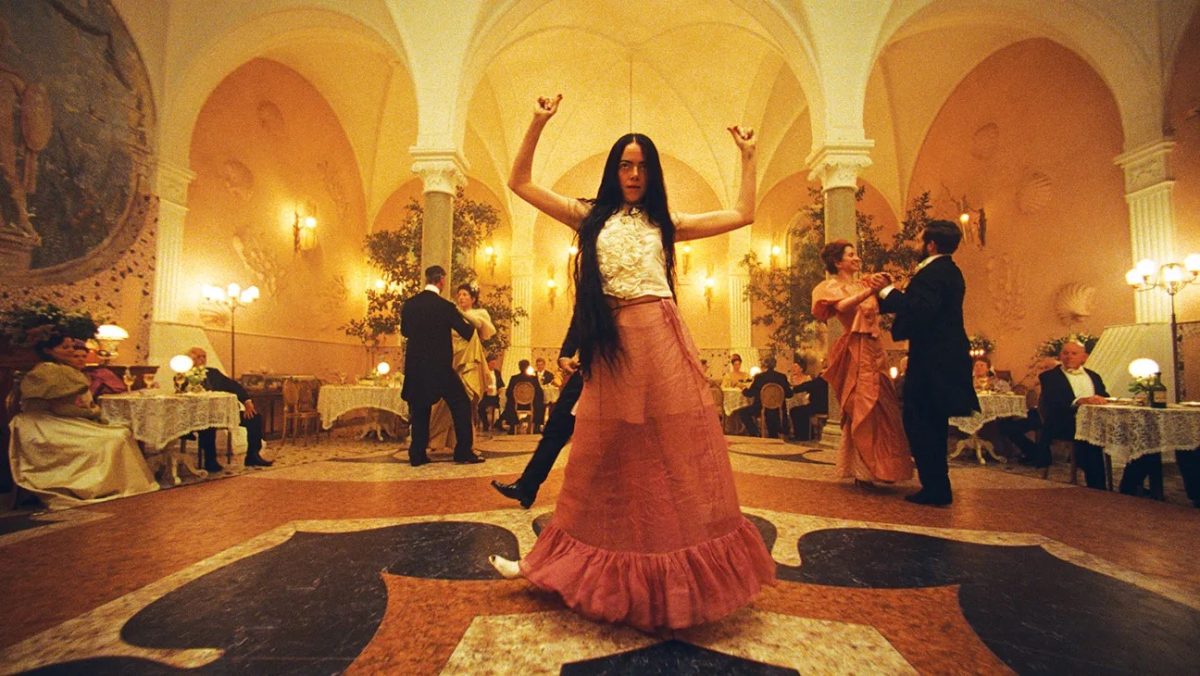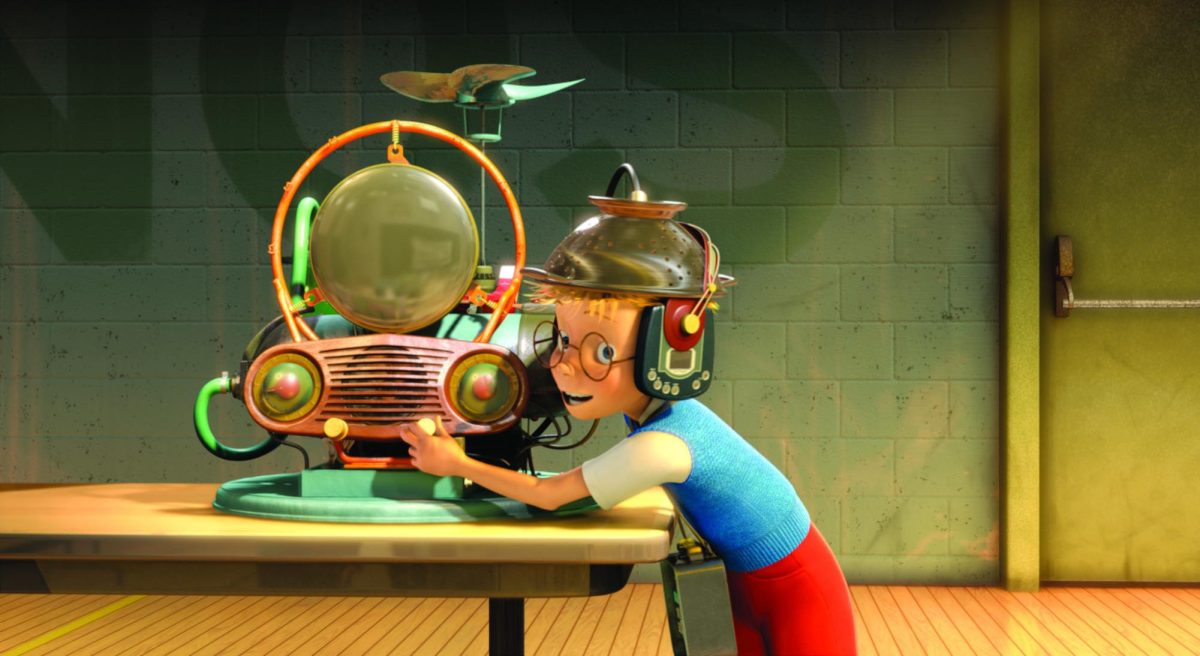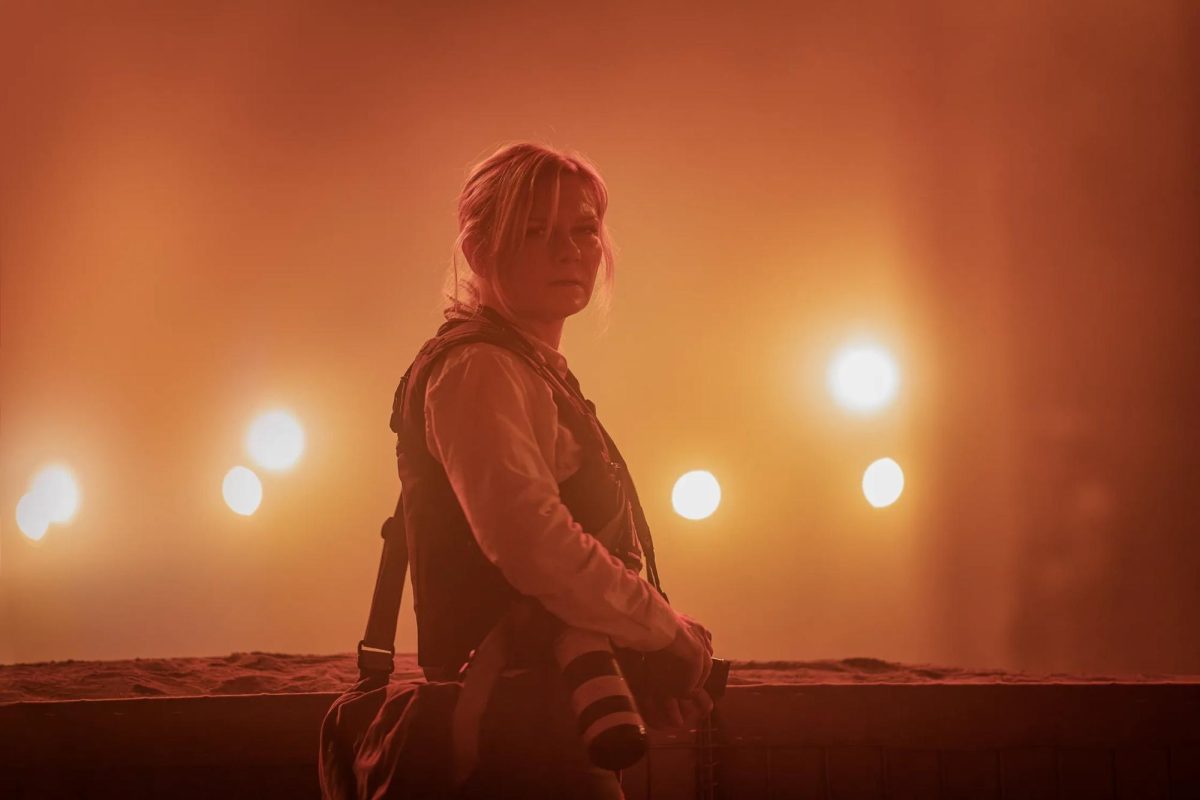Macy Gray
The Id
Epic
“”Id: the part of the psyche that is the source of instinctual impulses and demands for satisfaction.”” So reads the inside cover of Macy Gray’s sophomore album, “”The Id.”” And it’s true — her impulsive music demands satisfaction.
When Gray’s debut album, “”On the Way Life is,”” was first released in 1999, her virtual anonymity became short-lived once songs like “”I Try”” hit the airwaves. She refreshed us with multidimensional melodies and a dynamic presence. Her blend of soul, R&B, funk and hip-hop set her apart from her contemporaries.
While “”The Id”” maintains much of Gray’s unique style and subject matter, this time around Gray’s outlandish personality shines through even brighter than before. “”The Id”” is about the psyche of Gray.
Gray’s quirks appear throughout the album. Her lyrics are punchy and, when you pay attention, they’ll make you think or laugh, especially songs like “”Give Me All Your Lovin”” or “”I Will Kill You.”” The sound of “”Sexual Revolution”” is a funky experimentation with an updated disco pulse that will soon be heard on dance floors.
The most astonishing aspect of the album, however, is the song “”Oblivion,”” which sounds as if it was ripped from the score of “”Fiddler on the Roof.””
Dispersed through the oddities of Gray’s album are the slow beats and riveting sounds of trumpets that accompany her wherever she goes. “”Sweet Baby”” is the epitome of Macy Gray’s talents and the piece most reminiscent of her debut album. It’s an added plus that Erykah Badu performs the perfectly harmonic second half of the duet.
Yes, it’s true that Gray wore pink rain boots to the Grammy Awards last year. But regardless of her “”instinctual impulses”” and eccentricities, “”The Id”” is it.
— Mara Evans,
Contributing Writer
Tori Amos
Strange Little Girls
Atlantic
Tori Amos didn’t thank the faeries in the liner notes to her new album, “”Strange Little Girls.””
On her other releases, her thanks have, of course, gone out to her band, her friends or her family. And she has always thanked “”the faeries.””
She has intimated that the faeries inspire her song writing. And so, although it was jarring to have them missing, the faeries have little place on “”Strange Little Girls”” — Amos didn’t write a single song on the album.
Instead, the 12 tracks are all songs written by men — Eminem, Lou Reed, Tom Waits, Neil Young and the Beatles among them. In her characteristically esoteric style, she explains that she performed the songs as stories told from the perspective of women who “”approached [her] and said, ‘I have a point of view on this song that you may want to know, that may change how you hear its meaning.'””
Choosing standout tracks is nearly impossible, but a few lead the pack.
With samples from politicians, pundits and a journalist reporting on John Lennon’s murder, Amos turns Lennon and McCartney’s “”Happiness Is a Warm Gun”” into a trippy meditation on the right to bear arms.
But the most haunting piece is her flip-side take on Eminem’s “”’97 Bonnie and Clyde.”” She chants the gruesome murder-fantasy like a bedtime story, as if she is the mother whose body is pitched into a lake by her ex-husband and their baby daughter.
Schizophrenia? Maybe. But as varied as the songs are individually, the album as a whole achieves a unity of theme and mood not seen since “”Boys for Pele”” and “”Under the Pink.”” The entire album pulses with an energy that is unapologetically female — and unquestionably Tori.
— Claire J. Vannette,
Senior Staff Writer
Halfcocked
The Last Star
Dreamworks
For those who are tired of being exposed to the explosion of the rap/techno/rock combos and mellowed-out pop alternative, Halfcocked’s major label debut album, “”The Last Star,”” is here to feed your ears — a fresh, artfully harmonic blend of metal, punk and good old 1970s hard rock, laden with surprisingly smooth melodic pop sensibilities.
Their name is a Boston expression that means “”slightly drunk,”” which is quite apt for describing their frenetic style.
The members consist of two men and three women, including drummer Charlee Johnsson, who founded the band, and lead singer Sarah Reitkopp, whose amazing rock goddess vocals are like a cross between those of No Doubt’s Gwen Stefani and Curve’s Toni Halliday.
“”I Lied”” immediately draws you in with its simple yet extremely catchy guitar riffs and an intense chorus featuring fierce melodic bursts that stop intelligently short of the typical harsh screaming. It will have you nodding, if not outright head-banging, and belting out “”I lied,”” in no time.
“”Always”” is less intense, but has the same successful ingredients of amazing guitar work coupled with a very catchy melodic chorus and strong lyrics. “”Thanks for the Ride”” is a quirky upbeat song about a vibrator, and there is a short but impressive electric guitar solo at the end.
The rest of the songs, with the exception of “”Drive Away”” and “”Glitter,”” get repetitive and the intensity can get tiring. The repetition of these songs is mitigated by their short lengths. Johnsson explains, “”Basically, we make music for people with Attention Deficit Disorder and we’re eager to accept blame for attempting to resurrect the glory days of arena rock.”” Blame? I think not.
— Helen Pang,
Contributing Writer







